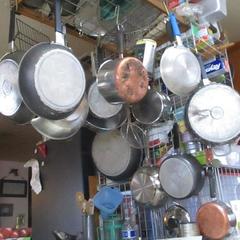-
Welcome to the eG Forums, a service of the eGullet Society for Culinary Arts & Letters. The Society is a 501(c)3 not-for-profit organization dedicated to the advancement of the culinary arts. These advertising-free forums are provided free of charge through donations from Society members. Anyone may read the forums, but to post you must create a free account.
White Sauce Question
-
Similar Content
-
Teriyaki Sauce
By Akiko,
- 9 replies
- 5,489 views
-
- 38 replies
- 643 views
-
- 106 replies
- 33,345 views
-
- 391 replies
- 102,296 views
-
Dried Egg Whites/Pasteurized Egg Whites for Meringues, Marshmallows, and Other Confectionary 1 2
By Jim D.,
- 34 replies
- 8,470 views
-
-
Recently Browsing 0 members
- No registered users viewing this page.






Recommended Posts